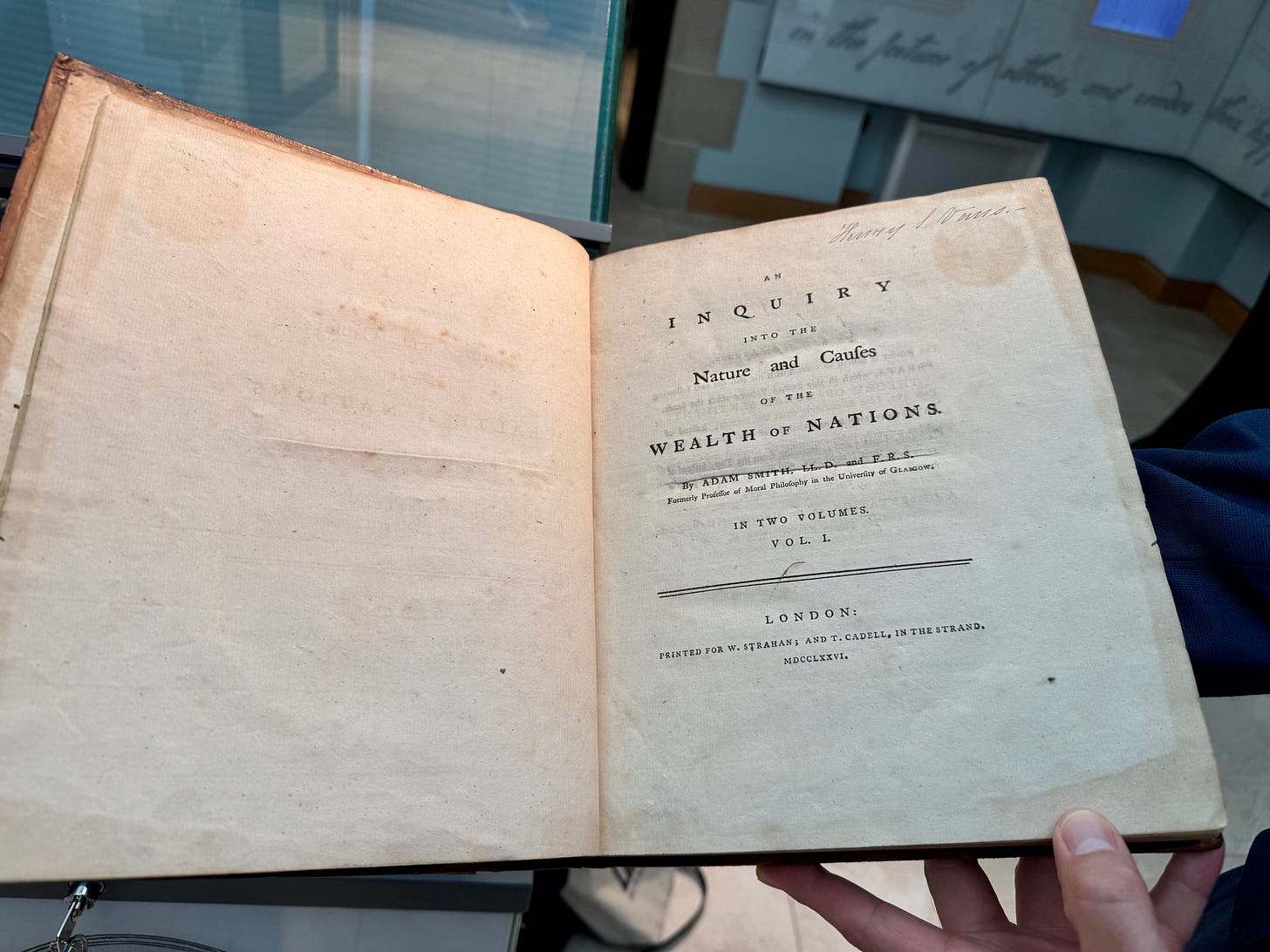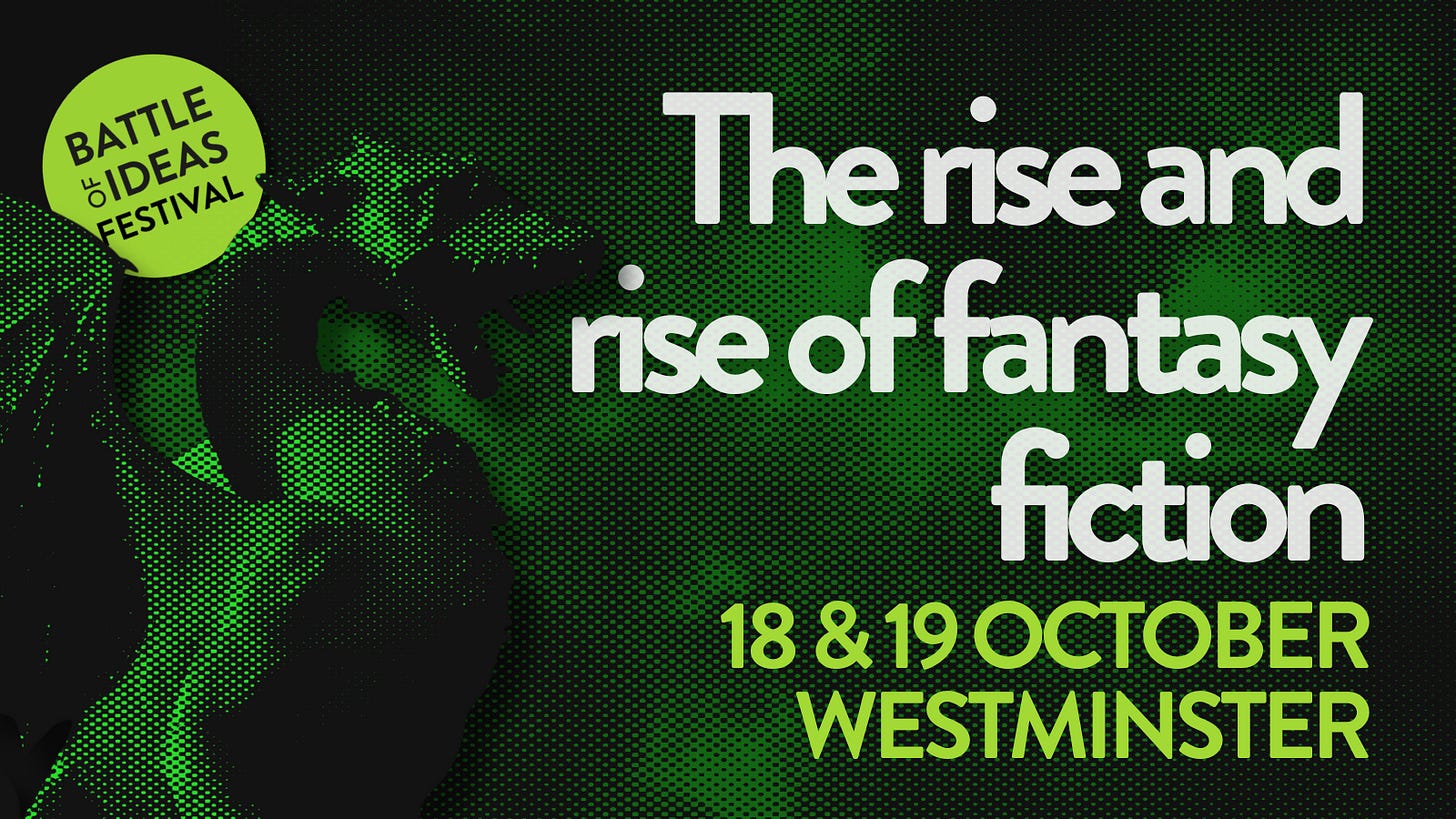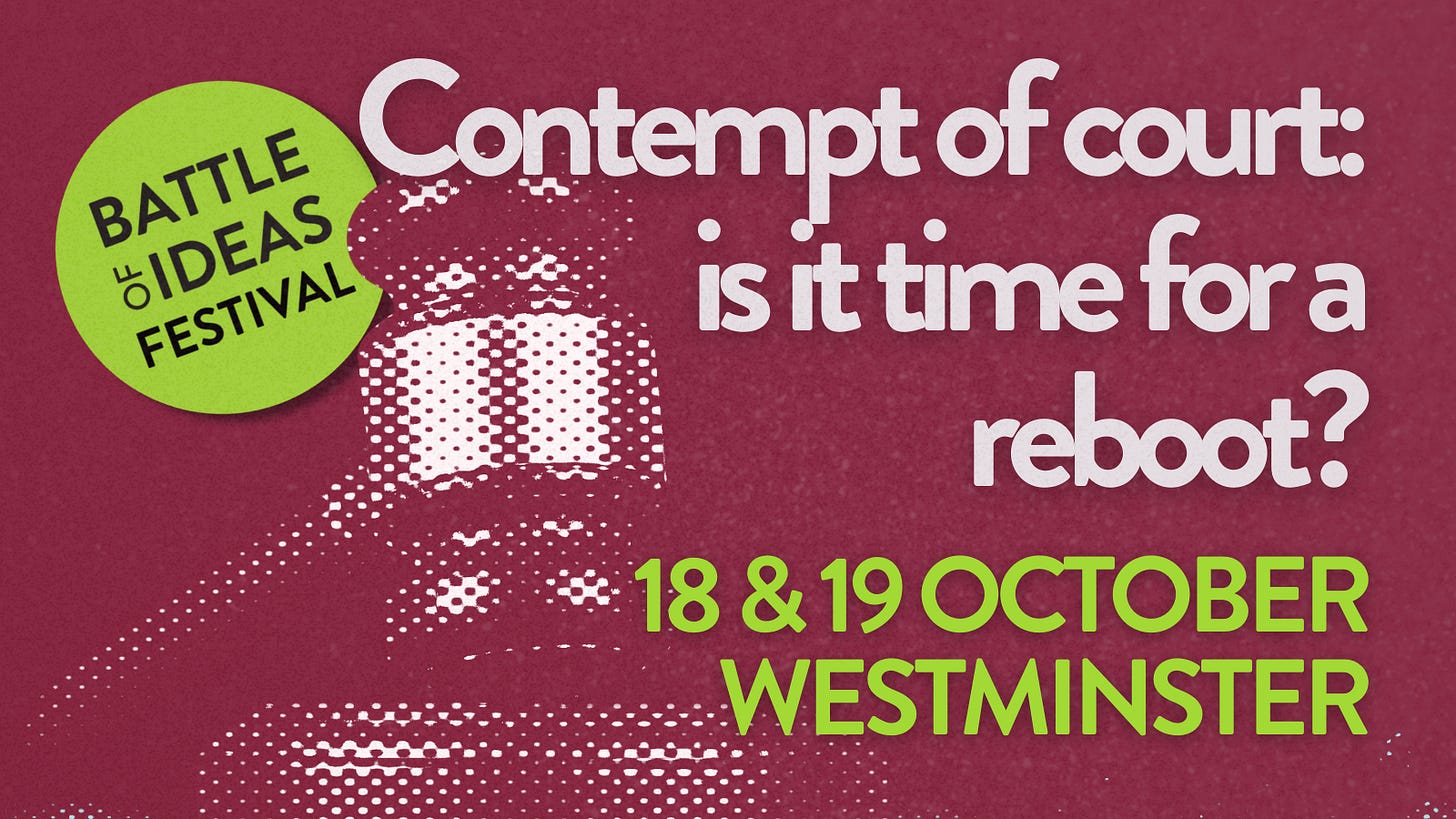When I Come Around
No, not a Green Day tribute band: I’m appearing at this year’s Battle of Ideas Festival
…and here’s an excellent collection of writing from Yours Truly & Lorenzo Warby, too.
In June this year, I did some consulting in Edinburgh that took in an appearance at Adam Smith’s Panmure House—where the Scottish economist lived for the last decade of his life. I can now say I’ve sat in Adam Smith’s dining room and visited his loo. The building has been expensively but faithfully restored, with lots of characteristic Edinburgh stone, and is a beautiful venue for meetings and events.
The Adam Smith Museum invitation came on the back of this piece, about the rise of Reform UK. Incredibly, it was published in early June but my analysis still holds, although Reform has now cracked the 30% support pain barrier with all pollsters save YouGov. Meanwhile, Farage’s challenger often isn’t Sir Keir Starmer or Kemi Badenoch, but Ed Davey from the Lib Dems—loopy stunts and all.
In my presentation—available here—I first set out my stall on why liberals are losing battles they really should win (vaccines come to mind). Using the (excellent) questions I received from the Edinburgh audience, I then worked up the same argument in print, for Law & Liberty. Neither the video nor the two pieces are paywalled, so fill your boots.
Shorter me: Liberal establishments globally have made so many mistakes over the last twenty years—coupled with a pervasive failure to acknowledge those mistakes—that ordinary members of the public in significant numbers are intuitively applying an evidentiary principle to them, one that exists in both common law and civilian systems: falsus in uno, falsus in omnibus.
This translates, reasonably idiomatically, into “false in one thing, therefore false in all.” It arises when counsel puts a witness in the box and he lies about a fact in issue or relevant evidence around it, typically under pressure of cross-examination. This has the effect of casting everything else he says into doubt, although the rule is not irrebuttable. It just means the side for which he’s appearing must work much harder to restore his lost credit.
It isn’t very comfortable to be told that an entire ideology (liberalism, widely defined; I draw on Andrew Doyle’s latest book for this aspect of my discussion) or an entire political movement with real heritage and history (UK Labour, UK Tories, the US Democrats) has badly lost its way. Telling a victim that he brought it on himself is never going to go down well.
Speaking of which, my latest longread—which came out on Wednesday for Quillette—uses two Australian Federal court cases as a vehicle to tell off two minorities. In the first, Lattouf v ABC, the organised Jewish lobby got a flea in its ear for engaging in what psychologists call “relational aggression” as part of a campaign to get a particular individual sacked for her views on Gaza.
Then, just to remind everyone that Australia still has the rule of law and applies it fearlessly, in Wertheim v Haddad, pro-Palestine Muslims got told off (with a big costs order attached) for arguing racism present in the Koran and Hadith and written in approximately the 7th century AD can be applied to modern Jewish people under the aegis of “free exercise of religion”.
Both judgments—as I point out—are illiberal. Speech and religious belief are subordinated to the Australian state (and be aware the Australian state has claws and teeth in a way most other liberal states don’t). However, both rulings also uphold the rule of law. Cancel culture is destructive of civil society. The organised Jewish lobby pioneered it over many decades—as most Australians know, I was on the receiving end of one particularly egregious example. Muslims, meanwhile, constantly make excuses for both their religion and their co-religionists’ bad behaviour—deeply implausible excuses, too—especially when the religion is violent, sexually incontinent, and bigoted. Both minorities have now been given an even-handed judicial slap.
My Quillette piece is mildly paywalled, in that you have to sign up to read it, but it won’t cost you anything once you do so. I do recommend it, if only because it took me a bloody month to write. I may be guilty of the sin of excessive scrupulosity.
For his part, Lorenzo Warby has not only co-written (with me) a piece on the assassination of Charlie Kirk, but a thoughtful piece over at his own place on the extent to which politicians don’t represent the people who vote for them—on culture. Meanwhile, those same politicians and ordinary members of the public are quite closely aligned politically when it comes to the economy.
This applies across the spectrum, by the way—so Labour voters will generally agree with their MPs on the economy but disagree with them on culture (the voters will be much more conservative). Meanwhile, Tory voters will agree with their MPs on the economy, while also being to the right of Tory MPs on culture. Notably, sometimes Labour voters are also to the right of Tory MPs on culture (when immigration is polled as an issue).
If you spend time in British wonk-world, one thing you soon learn is that majorities here still support the death penalty. Lorenzo’s piece goes a long way to explaining why this phenomenon exists.
Battle of Ideas Appearance
Finally (and I will promote this again a few days before the event), I’ll be a guest at this year’s Battle of Ideas Festival on the weekend of 18 & 19 October in Westminster. Battle of Ideas has been around since 2005; this year is the festival’s twentieth anniversary. It’s one British literary festival that wasn’t killed either by COVID-19 or Baillie Gifford’s 2024 arts funding withdrawal. I should note here that the Adam Smith Museum—discussed above—has also had the good sense to retain Baillie Gifford as a corporate sponsor.
There are hundreds of sessions to choose from, bringing together hundreds of speakers and thousands of attendees. Unlike many other events, at least half of each session is given over to audience questions and comments. The aim, set out in the festival strapline, is to have “conversations for the public, with the public, in public”.
The festival’s éminence grise is Baroness Claire Fox, and her presence is enough to ensure that it invites speakers from across the political spectrum. One of my sessions is being chaired by a Guardian journalist! Yes, you read that right—Speccie writer on a panel with a Guardian writer—wonders shall never cease.
On Saturday at 2:45, I’ll be discussing fantasy fiction (and the way publishing has exploded all over itself since at least 2020 and probably before), while on Sunday at 12:45 I’ll be discussing contempt of court and the Law Commission’s mooted changes to relevant legislation (yes that’s the lawyer panel, I always have to do a lawyer panel).






“ Liberal establishments globally have made so many mistakes over the last twenty years—coupled with a pervasive failure to acknowledge those mistakes—that ordinary members of the public in significant numbers are intuitively applying an evidentiary principle to them, one that exists in both common law and civilian systems: falsus in uno, falsus in omnibus.”
It’s a bit surprising how many members of the public (mostly older and more prosperous one) have NOT reacted with skepticism to the establishment, given its profound and extensive failures (and deceptions).
https://jmpolemic.substack.com/p/intransigence
Have long admired your writing Helen. Look forward to seeing you at Battle.